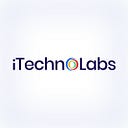How does Artificial Intelligence Works in the Healthcare Sector?
Artificial Intelligence (AI) is progressively being used in healthcare as it becomes more prevalent in modern and everyday lives. Artificial intelligence in the health sector has the potential to aid healthcare practitioners with a variety of patient care and administration operations, allowing them to improve on current solutions and overcome obstacles more quickly. Although most AI and healthcare technologies are helpful in healthcare, their strategies can differ significantly between hospitals and other healthcare organizations. While some believe that AI can perform just as well or better than humans at specific processes, such as diagnosing sickness, it will be long before AI in healthcare replaces people for a wide range of medical jobs. However, many others are still unsure. How exactly artificial intelligence works in the healthcare sector, and what are its advantages? What is the current state of AI in healthcare, and what will it look like in the future? Will it ever replace people in critical operations and medical services?
The answer to these questions lies in this article, where we give you information about the various ways artificial intelligence works in the healthcare sector. But before we dive in, let us understand what AI in the healthcare sector is?
What is Artificial Intelligence in the Healthcare Sector?
Artificial intelligence in the healthcare sector refers to employing complicated algorithms that automate specific tasks. When data is injected into computers by researchers, doctors, and scientists, the newly developed algorithms can review, understand, and even suggest remedies to complex medical problems. Artificial Intelligence has a plethora of applications in healthcare, and that’s all we know. We also recognize that we’ve barely begun to scratch the surface of what AI can accomplish in the healthcare field. It’s both incredible and terrifying at the same time.
Ways in which Artificial Intelligence works in the Healthcare Sector:
- Keeping Well on a day-to-day basis
One of AI’s most significant benefits is that it can help people have a healthy lifestyle, so they don’t need to visit a doctor as often, if at all. People benefit from the Internet of Medical Things (IoMT) and AI in consumer health applications. Individuals are asked to adopt better habits by using technology tools and apps, which aid in the dynamic maintenance of a healthy lifestyle. It gives customers control over their well-being.
Furthermore, AI improves healthcare providers’ capacity to understand better the daily patterns and requirements of the patients they care for, allowing them to give better feedback, advice, and support to help them stay healthy.
- Early Detection of health problems
AI has already been used to diagnose illnesses more precisely and in their initial stages, such as cancer. According to the American Cancer Society, a massive percentage of mammograms provide misleading findings, resulting in one out of every two women being diagnosed with cancer. AI allows mammograms to be reviewed and translated 30 times quicker with 99 percent accuracy, decreasing the need for unneeded biopsies.
Smart wearables and other medical devices, combined with AI, are being used to monitor and prevent potentially life-threatening episodes in early-stage heart disease. It allows doctors and other caretakers to better monitor and detect possibly severe occurrences earlier, more treatable.
- Changing ways of consultations
The Babylon App is a working example of how artificial intelligence (AI) might alter medical consultations. Online medical consultations and healthcare services are available through the app, and the app offers medical AI advice based on a patient’s medical history and current medical understanding.
These AI-based apps function by requiring users to disclose their illness’s symptoms, which the app then compares to a database of ailments using speech recognition. Then, after taking into account the patient’s history and current circumstances, they recommend a plan of action for the patient to follow.
When appropriately designed with the support of a healthcare software development business, apps like these assist patients in monitoring their health and help reduce waiting room crowding and wait time.
- Diagnosis of health problems
Disease diagnosis and treatment have been at the heart of artificial intelligence in healthcare for many years. Early regulation systems could diagnose and treat the disease properly, but they were not widely adopted in clinical practice. They were no better at detecting than humans, and their integration with clinical workflows and patient records systems was less optimal.
Watson for Health from IBM enables healthcare companies to use cognitive technology to unlock massive volumes of health data and make more accurate diagnoses. Watson can review and retain significantly more medical data than anyone, including every medical publication, symptom, and case study of therapy and reaction worldwide.
DeepMind Health, a division of Google, collaborates with physicians, academics, and patients to tackle real-world healthcare issues. The technique combines machine learning and systems neuroscience to create neural networks that imitate the human brain and incorporate sophisticated general-purpose learning algorithms.
